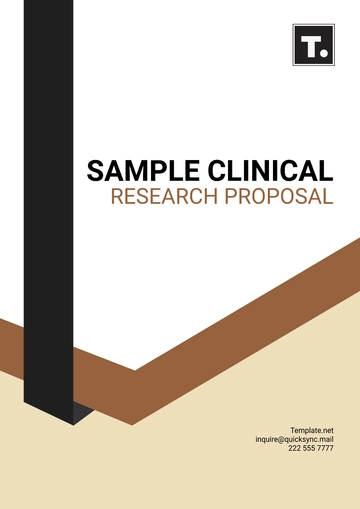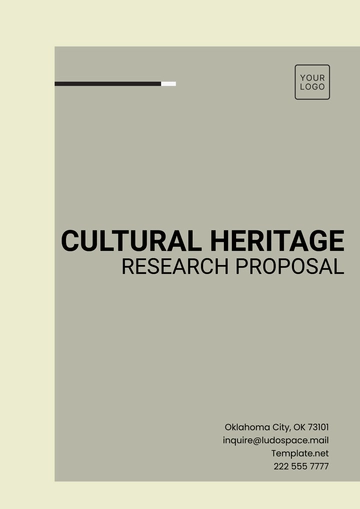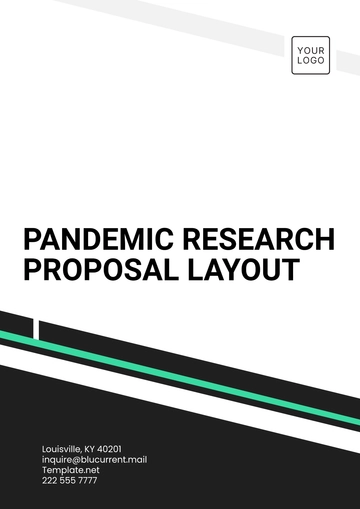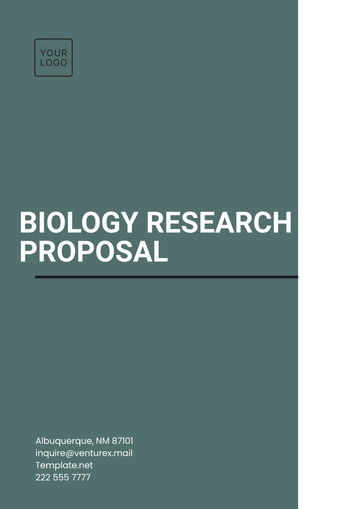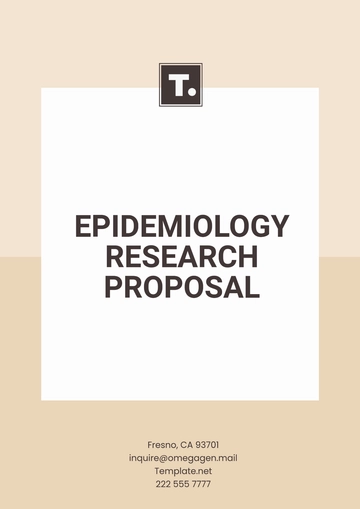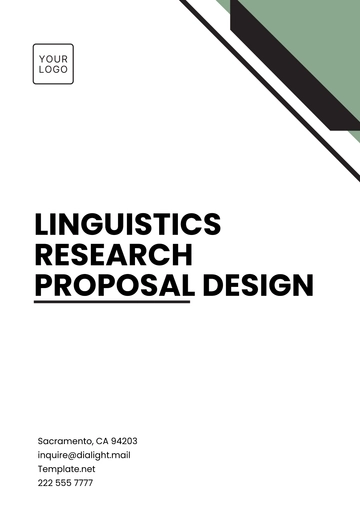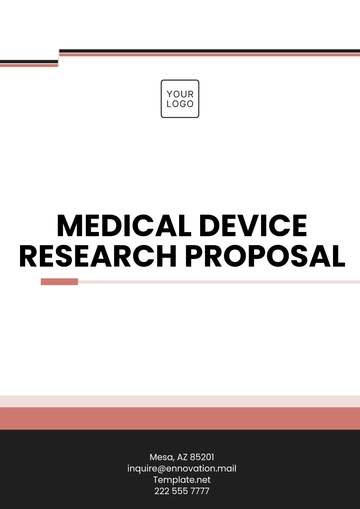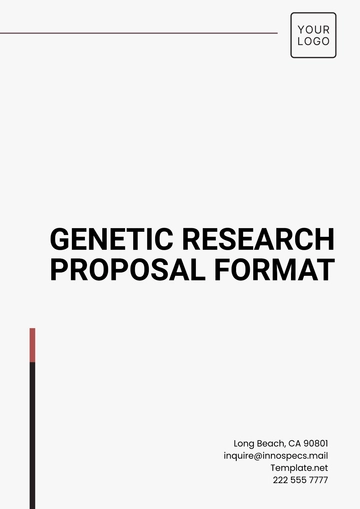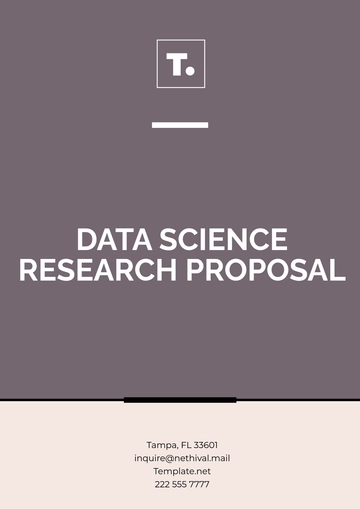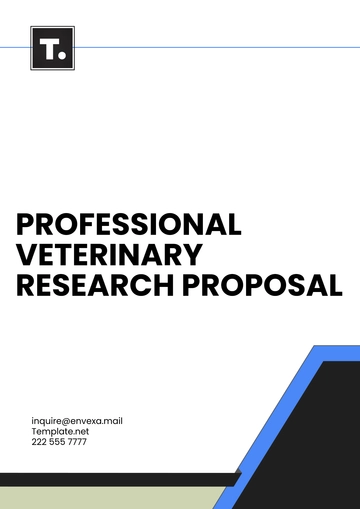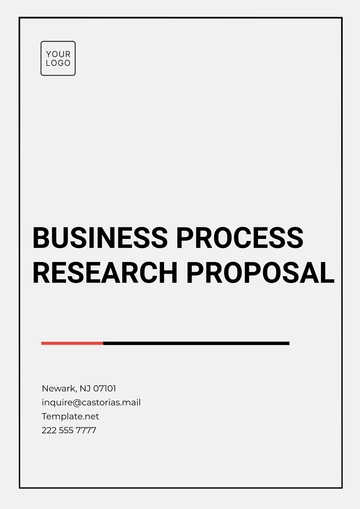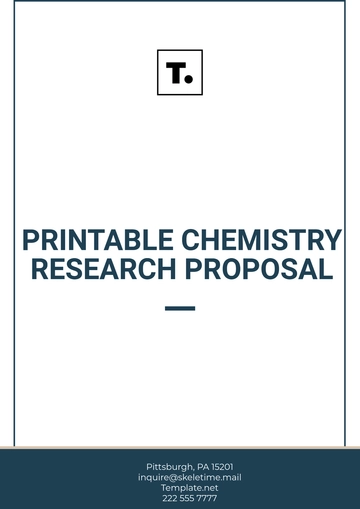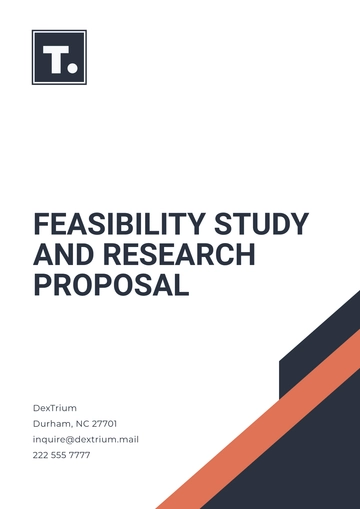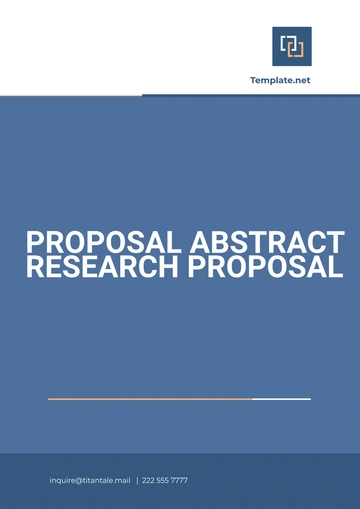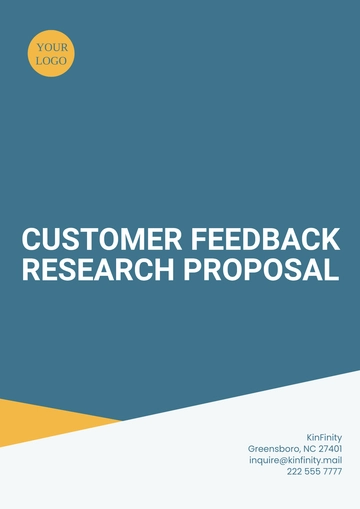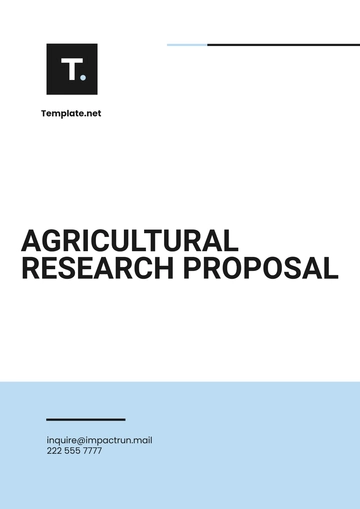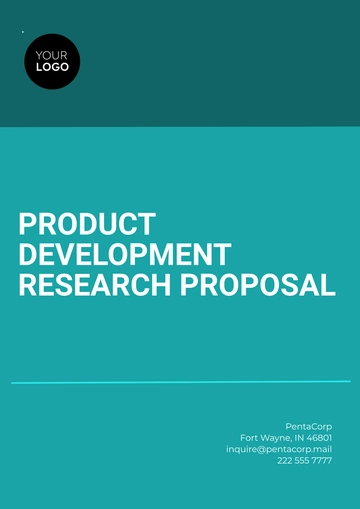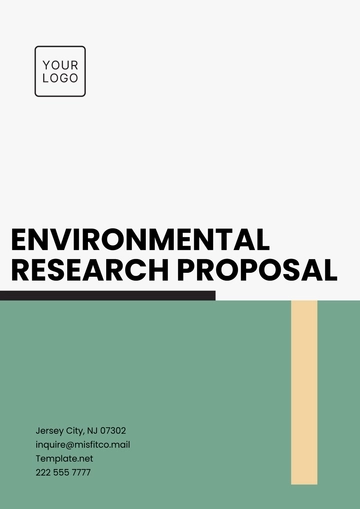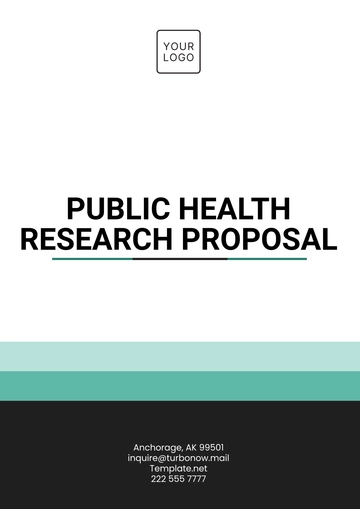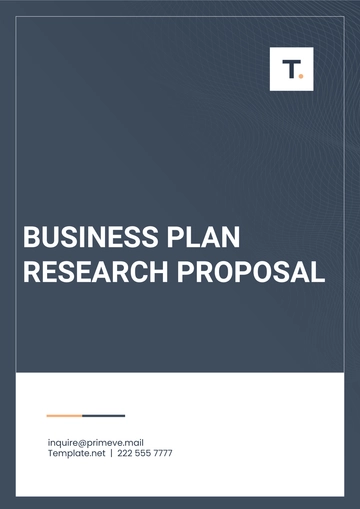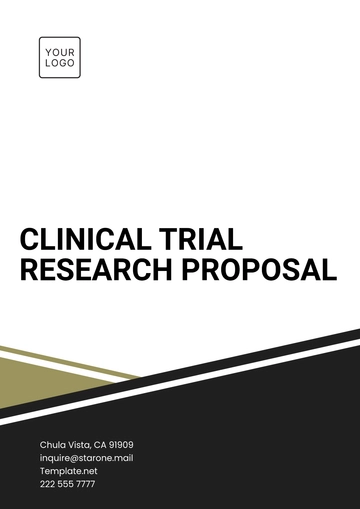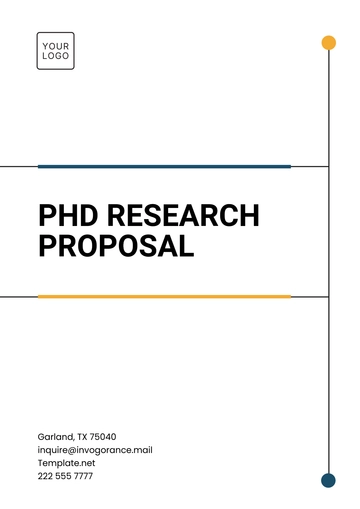Free Environmental Research Proposal
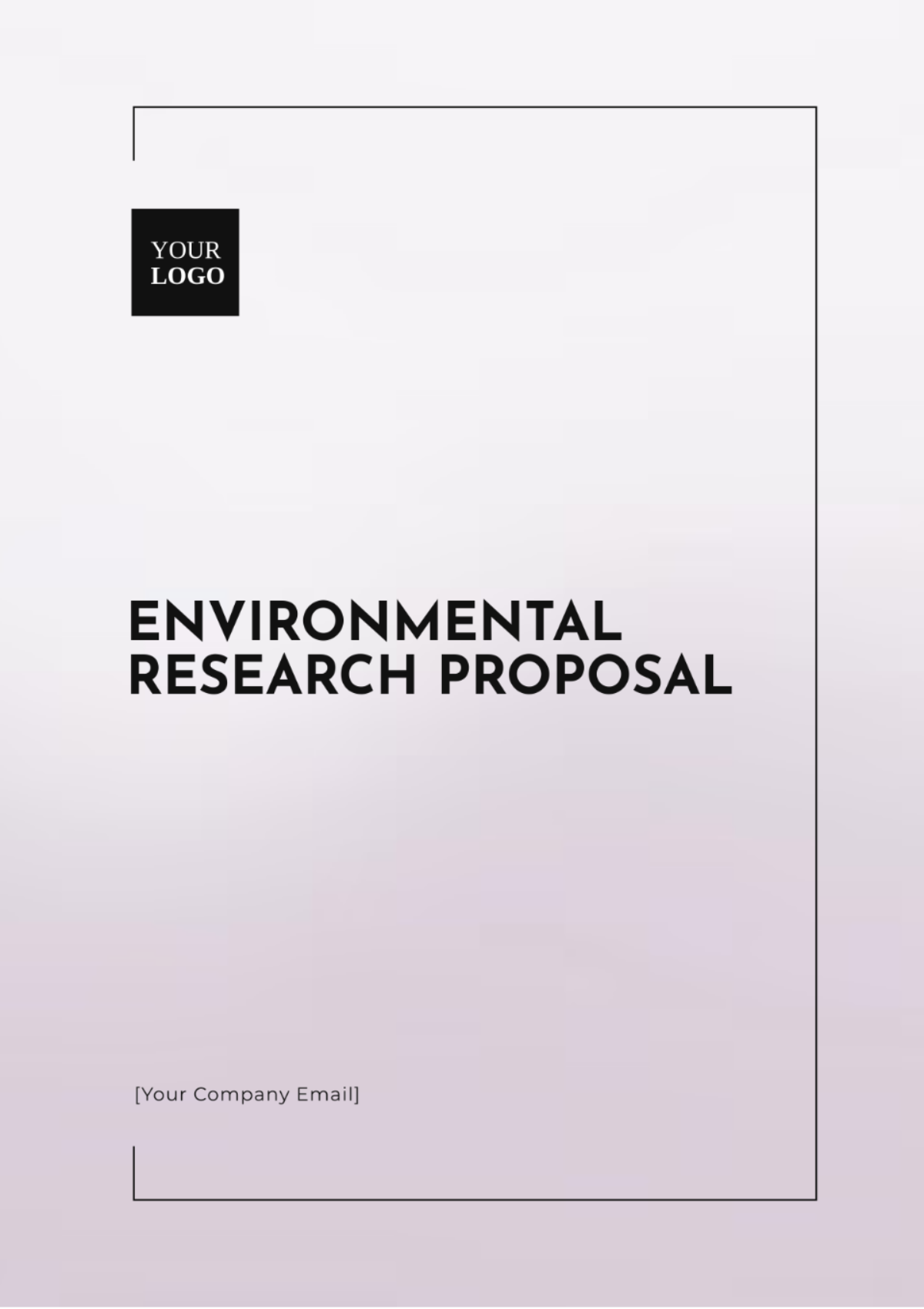
Prepared By: [YOUR NAME]
Date: [DATE]
I. Abstract
This study intends to explore how urbanization affects local water bodies and biodiversity in the metropolitan region, using a mix of quantitative and qualitative approaches such as water quality analysis, biodiversity assessments, and community interviews, ultimately providing a detailed insight into the environmental impacts of urban development to guide future planning and protection strategies.
II. Introduction
Urbanization has been recognized as a major factor contributing to environmental degradation, particularly affecting water bodies and local biodiversity. The rapid expansion of metropolitan areas often leads to increased pollution, habitat loss, and changes in ecosystem dynamics. This research focuses on understanding the extent of these impacts in a specific metropolitan area, highlighting the importance of sustainable urban planning.
The main problem addressed in this study is the lack of comprehensive data on how urbanization affects local aquatic environments and biodiversity. This information is critical for developing effective environmental regulations and urban planning strategies that mitigate negative impacts.
III. Literature Review
Previous research has shown that urbanization can increase surface runoff, carrying pollutants into water bodies (Smith et al., 2058). Studies have also documented the decline in local biodiversity due to habitat fragmentation and pollution (Brown & Johnson, 2059). However, there is a gap in research focusing on the cumulative effects of these variables in specific urban settings. This study aims to fill this gap by providing targeted data and analysis.
IV. Objectives and Research Questions
A. Objectives
This study aims to comprehensively assess and understand how urbanization impacts water quality in local streams, rivers, lakes, and other water bodies.
To thoroughly assess and understand the variations and alterations in biodiversity that are linked to, or a direct result of, the growth and expansion of urban areas.
To understand community views on urbanization and its environmental impacts, we must explore their opinions deeply.
B. Questions
What are the primary contaminants impacting local water bodies as a result of urban runoff?
How has the diversity and range of living organisms within the specified study area undergone changes and developments over the past decade?
What are residents' common perceptions and concerns regarding urbanization and environmental health?
V. Methodology
The research will utilize a mixed-methods approach, combining quantitative and qualitative data collection techniques:
Water Quality Testing: Collect water samples from various locations within the metropolitan area. Test for pollutants such as nitrates, phosphates, heavy metals, and bacterial contamination.
Biodiversity Surveys: Conduct regular biodiversity surveys in selected green spaces and water bodies to record species presence and abundance. Use standard ecological survey methods.
Community Interviews: Conduct semi-structured interviews with residents to gather information on their perceptions of urbanization and its effects on the environment.
The data will be analyzed using statistical software for quantitative data and thematic analysis for qualitative data.
VI. Expected Results
The study is expected to reveal significant correlations between urbanization and deteriorating water quality, as well as a decline in local biodiversity. Additionally, the community interviews are anticipated to uncover a broad spectrum of opinions and concerns, which could inform future policy decisions.
These findings will contribute valuable insights into the environmental impacts of urbanization, providing a basis for more sustainable urban planning and environmental protection measures.
VII. Budget and Timeline
A. Budget
Item | Estimated Cost (USD) |
|---|---|
Water Quality Testing Kits | $2,000 |
Biodiversity Survey Equipment | $1,500 |
Interview Materials and Transcription Services | $1,000 |
Data Analysis Software | $500 |
Miscellaneous (Travel, administrative costs) | $1,000 |
B. Timeline
Activity | Estimated Duration |
|---|---|
Literature Review and Planning | 1 month |
Data Collection | 3 months |
Data Analysis | 1 month |
Report Writing and Dissemination | 1 month |
VIII. References
Brown, J., & Johnson, P. (2059). Impacts of urbanization on local biodiversity. Journal of Environmental Research, 45(3), 234-245.
Smith, R., et al. (2058). Urban runoff and water quality: A review. Water Research, 54(2), 567-579.
- 100% Customizable, free editor
- Access 1 Million+ Templates, photo’s & graphics
- Download or share as a template
- Click and replace photos, graphics, text, backgrounds
- Resize, crop, AI write & more
- Access advanced editor
Address environmental challenges with our Environmental Research Proposal Template from Template.net. This editable and customizable template is perfect for detailing your research aims, methodologies, and anticipated environmental impacts. Editable in our AI Editor Tool, it provides you with the flexibility to modify the content to align with your unique research objectives.
You may also like
- Business Proposal
- Research Proposal
- Proposal Request
- Project Proposal
- Grant Proposal
- Photography Proposal
- Job Proposal
- Budget Proposal
- Marketing Proposal
- Branding Proposal
- Advertising Proposal
- Sales Proposal
- Startup Proposal
- Event Proposal
- Creative Proposal
- Restaurant Proposal
- Blank Proposal
- One Page Proposal
- Proposal Report
- IT Proposal
- Non Profit Proposal
- Training Proposal
- Construction Proposal
- School Proposal
- Cleaning Proposal
- Contract Proposal
- HR Proposal
- Travel Agency Proposal
- Small Business Proposal
- Investment Proposal
- Bid Proposal
- Retail Business Proposal
- Sponsorship Proposal
- Academic Proposal
- Partnership Proposal
- Work Proposal
- Agency Proposal
- University Proposal
- Accounting Proposal
- Real Estate Proposal
- Hotel Proposal
- Product Proposal
- Advertising Agency Proposal
- Development Proposal
- Loan Proposal
- Website Proposal
- Nursing Home Proposal
- Financial Proposal
- Salon Proposal
- Freelancer Proposal
- Funding Proposal
- Work from Home Proposal
- Company Proposal
- Consulting Proposal
- Educational Proposal
- Construction Bid Proposal
- Interior Design Proposal
- New Product Proposal
- Sports Proposal
- Corporate Proposal
- Food Proposal
- Property Proposal
- Maintenance Proposal
- Purchase Proposal
- Rental Proposal
- Recruitment Proposal
- Social Media Proposal
- Travel Proposal
- Trip Proposal
- Software Proposal
- Conference Proposal
- Graphic Design Proposal
- Law Firm Proposal
- Medical Proposal
- Music Proposal
- Pricing Proposal
- SEO Proposal
- Strategy Proposal
- Technical Proposal
- Coaching Proposal
- Ecommerce Proposal
- Fundraising Proposal
- Landscaping Proposal
- Charity Proposal
- Contractor Proposal
- Exhibition Proposal
- Art Proposal
- Mobile Proposal
- Equipment Proposal
- Student Proposal
- Engineering Proposal
- Business Proposal
